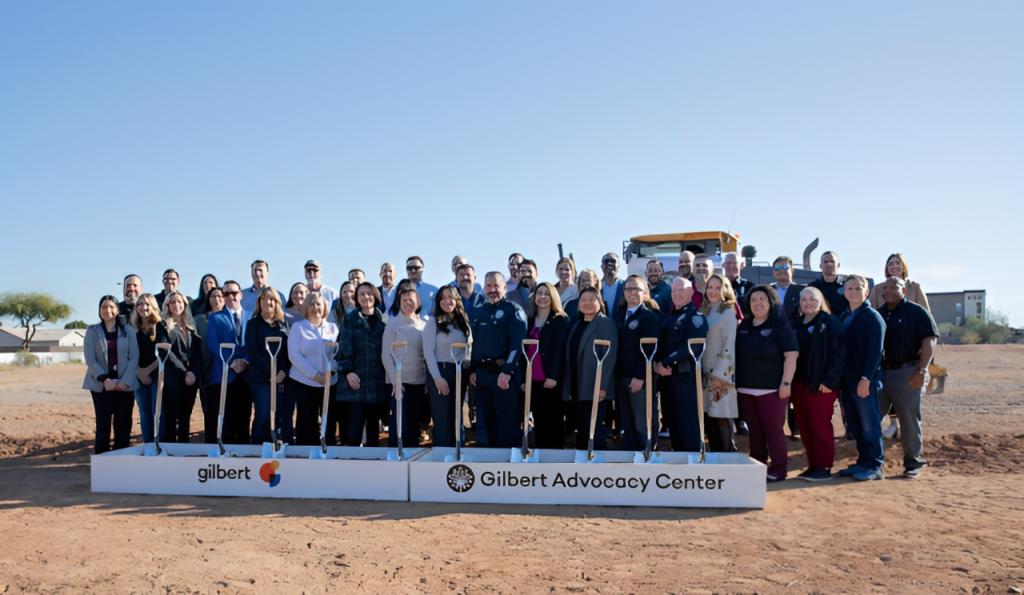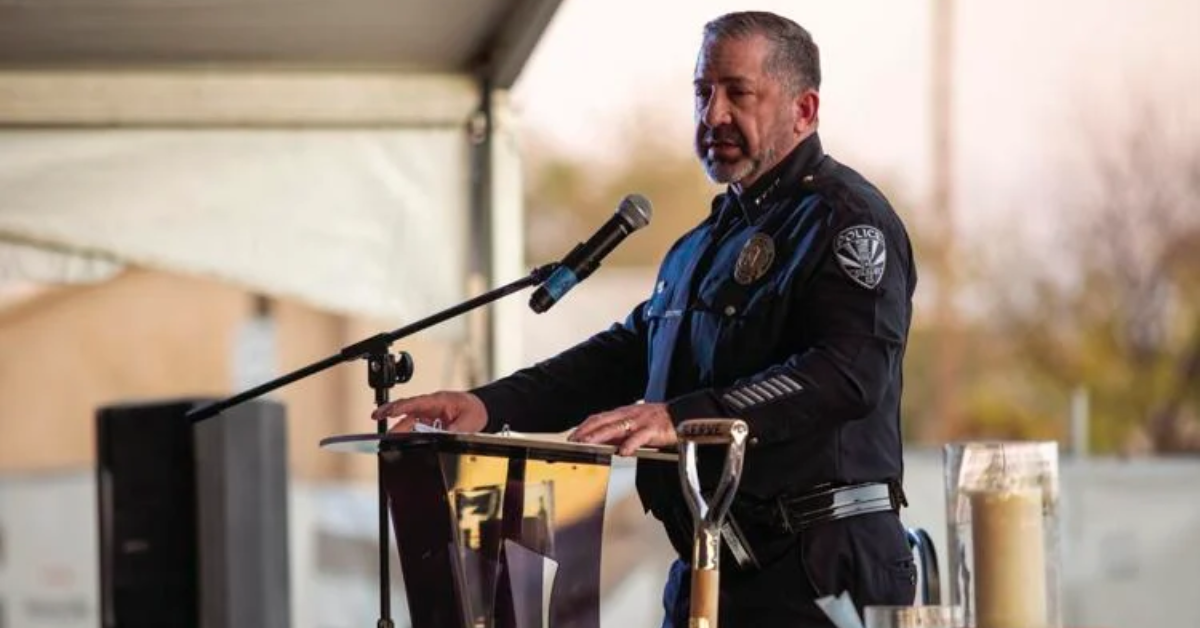Gilbert town officials and community leaders gathered on January 13 to celebrate the groundbreaking of the Crime Victims Advocacy Center. The event was a special moment for the town, marking a significant step towards providing support for victims of crime in the community.
Assistant Town Manager Leah Rhineheimer kicked off the ceremony, inviting members of the audience to share words that came to their minds when they thought about the center. Police officers, town officials, and members from non-profit organizations expressed words like “survivor,” “hope,” “dignity,” “compassion,” and “gratitude.” These words were symbolically placed in a bowl that will be put inside the completed center, representing the collective spirit of the project.
Mayor Scott Anderson spoke at the ceremony, emphasizing that the center was not just a building but part of Gilbert’s vision for the future. He expressed his belief that a prosperous community is one that takes care of its people, and that is what the center is all about. “This advocacy center is about taking care of our own,” he said, recognizing the efforts of everyone who helped bring this project to life.
Gilbert Police Chief Michael Soelberg, who had advocated for the center for many years, addressed some questions from the community. He acknowledged that Gilbert is often considered a safe place to live, but crime doesn’t discriminate.
“Domestic violence, sex crimes, elder abuse, child abuse – they don’t have boundaries,” Soelberg said, stressing that these issues affect all parts of society, regardless of race, religion, ethnicity, or gender. He mentioned that many of these crimes, if not addressed early, often escalate to homicides. In the past year alone, Gilbert police responded to nearly 1,900 calls related to domestic violence, showing the real and growing need for such a center.

The center’s construction is set to cost approximately $43 million. The town has contributed $20 million from its General Fund, with the rest coming from the Federal American Rescue Plan Act (ARPA) funds. The center will be located at Civic Center Drive and American Heroes Way, with completion expected by the end of next year.
At that point, the center will begin offering services to victims, providing a range of services under one roof, such as forensic exams, evidence collection, interviews, and victim advocacy. Currently, the police work with neighboring cities like Mesa and Chandler to support victims, but this new center will bring more services to the town.
Former Mayor Brigette Peterson, who grew up in a home affected by domestic violence and alcoholism, shared her personal connection to the cause. She noted that, in the past, society didn’t address these issues the way it does now.
Peterson recalled an event in 2024, where 1,400 flags were placed on the Town Hall lawn, each one representing a case of domestic violence in Gilbert over the past year. “My greatest wish would be that there wouldn’t be any flags, or any need for this Advocacy Center, but reality tells us otherwise,” she said. She called the center a “flagship project” for the town and expressed her pride in being part of its planning and development.
Former Council Member Kathy Tilque, who took over the role of domestic violence liaison from Peterson, shared her own experiences. She spoke about the sense of hopelessness victims feel when they seek help and are turned away or ignored.
“This Advocacy Center will profoundly and positively impact countless lives,” she said. She also highlighted the importance of community support, explaining that the center alone cannot solve the issue. Tilque announced that she would be the founding president of the Gilbert Advocacy Center Foundation, a nonprofit organization that will raise funds and bring together community resources to support the center.
The foundation’s website lists several key people, including Kathleen Dowler from Dignity Health, Sarah Watts from the Gilbert Chamber of Commerce, and Trinity Donovan from AzCend, as part of its leadership team. The first donors to the foundation include Tilque and her husband, as well as businesses such as Salt River Project, DB Creative Design LLC, and Whithey Morris Baugh PLC.
Town Manager Patrick Banger expressed his gratitude to all the elected officials, partners, and construction associates involved in the project. He specifically thanked the architecture and construction firms that would help complete the center.
The ceremony ended on a hopeful note as Rhineheimer and Tilque lit a “Pillar of Hope” with their candles, and the audience joined in by raising their electric candles. In the spirit of support, the community was also encouraged to donate stuffed animals to be given to victims at the center once it is completed.
Disclaimer: This article has been meticulously fact-checked by our team to ensure accuracy and uphold transparency. We strive to deliver trustworthy and dependable content to our readers.

